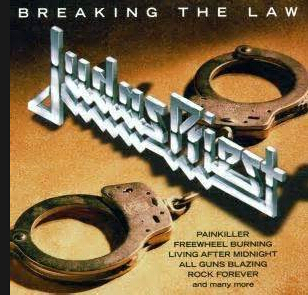

General Criminal Provisions
Mail Fraud. The mail fraud statute, 18 U.S.C. § 1341, generally prohibits the use of the mails to execute a scheme to defraud a victim of money or property. To prove mail fraud, the government must generally prove that the defendant knowingly participated in a scheme to defraud using false statements, representations or omissions, acted with the specific intent to defraud, and that the defendant mailed something for purposes of carrying out the scheme. The penalty for mail fraud not affecting a financial institution is a fine and/or imprisonment for up to 20 years.
Wire Fraud. The wire fraud statute, 18 U.S.C. § 1343, generally prohibits the use of wire communications to execute a scheme to defraud a victim of money or property. The government must prove the same elements as for mail fraud, except the defendant must have used interstate wire communications facilities (rather than the mail) for purposes of carrying out the scheme. The penalty for wire fraud not affecting a financial institution is a fine and/or imprisonment for up to 20 years.
Retaliation against whistleblowers. It is a crime to knowingly take any action harmful to a person (including interference with the person’s employment), with the intent to retaliate for providing to a law enforcement officer any truthful information relating to the commission or possible commission of any federal offense. See 18 U.S.C. § 1513(e) Violators of this provision can be fined and/or imprisoned for up to 10 years. Id.
Attempt and Conspiracy. It is a crime to attempt or conspire to commit any offense under 18 U.S.C. chapter 63, which includes the general securities fraud statute, false certification statute, wire fraud and mail fraud. See 18 U.S.C. § 1349. The penalty for attempt or conspiracy is the same as that for the underlying offense. To prove a criminal conspiracy, the government must generally prove that the defendant and at least one other person entered into an unlawfulagreement to violate the law, that the defendant knowing and willfully joined in the agreement, and that one of the conspirators committed an overt act in furtherance of the agreement.
Aiding and Abetting. The general aiding and abetting statute, 18 U.S.C. § 2, provides that anyone who aids, abets, or induces the commission of a crime may be punished for a crime actually committed by another person. The government must prove that someone (called the “principal”) committed a crime, that the defendant associated himself with the crime, and that the defendant participated in the crime with the intent to help the principal commit it.
Process Offenses
Obstruction of Justice. The obstruction of justice statute, 18 U.S.C. § 1503, generally prohibits corruptly influencing the due administration of justice in a pending judicial proceeding, or attempting to do so.
The government must prove that there was a pending federal judicial proceeding (such as a grand jury proceeding), the defendant knew or was on notice of the proceeding, and acted corruptly with the specific intent to influence, obstruct or interfere with the proceeding or the due administration of justice. The penalty under the obstruction of justice statute is a fine and/or imprisonment for up to 10 years (so long as the obstruction does not involve a killing or attempted killing).
Similarly, a provision of the witness and document tampering statute makes it a crime to corruptly obstruct, influence or impede any official proceeding or attempt to do so. See 18 U.S.C. § 1512(c)(2). The penalty under this statute is a fine and/or imprisonment for up to 20 years.
Destruction of Documents. The Sarbanes-Oxley Act of 2002 included a new criminal offense covering document destruction that was intended to cover any gaps in pre-existingobstruction of justice statutes. The statute prohibits knowingly altering, destroying, concealing or falsifying a document or record with the intent to impede, obstruct, or influence the investigation or proper administration of any matter within the jurisdiction of any U.S. department or agency or in relation to or contemplation of any such matter or case. See 18 U.S.C. § 1519. Violators of this provision can be fined and/or imprisoned for up to 20 years. Id.
Unlike the general obstruction of justice statute, this provision is not limited to conduct that obstructs a pending judicial proceeding; it extends to acts done in contemplation of a roceeding, such as acts done before an investigation has even begun.
In addition, a provision of the general witness and document tampering statute makes it a crime to “corruptly” alter, destroy, or conceal a document or record, or attempt do so, with the intent to impair the document or object’s integrity or availability for use in an official proceeding, or to corruptly persuade another person to do so. See 18 U.S.C. § 1512 (b) and (c).
Violators of this provision can be fined and/or imprisoned for up to 20 years. Id. This is the provision that accounting firm Arthur Andersen LLP was convicted of violating when, as Enron’s financial difficulties were becoming public, it allegedly instructed its employees to destroy documents pursuant to its document retention policy.
False Statements. It is a crime to knowingly and willfully make a false or fraudulent statement in any matter within the jurisdiction of the executive, legislative, or judicial branch of the U.S. government. See 18 U.S.C. § 1001. For example, making a false, material statement to the SEC or a federal agent conducting an investigation may form the basis of a criminal charge for making false statements. The penalty for making a false statement not involving terrorism isa fine and/or imprisonment for up to 5 years. This is one of the crimes for which Martha Stewart was convicted.
Perjury. It is also a crime to willfully make false statements under oath. See 18 U.S.C. § 1621. The penalty for perjury is a fine and/or imprisonment for up to 5 years



















